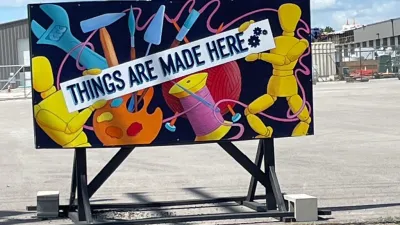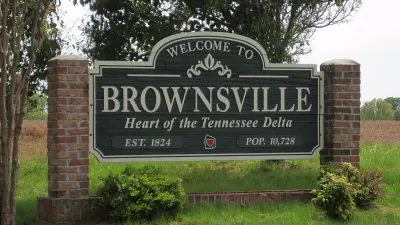Katharine Seelye writes on the clash between business interests and residents of rural Maine, where a proposed private toll road has revealed a difference in values.
Some people will say, "If it's not broken, don't fix it." Others believe that though something may not be broken, it could still use a tune-up. Peter Vigue, chairman and chief executive of Cianbro Corporation in Maine, falls into the latter category. He saw the lack of east-west roads in Maine as a major obstacle to growing the state's economy, and has proposed a 220 mile-long $2 billion private toll road that would take advantage of its deep water port to increase trade through the region.
While Vigue's main goal lies in building the state's economy, the residents of Maine claim that things are just fine as they are. "Maine is a rural state, and this is a businessman who is trying to make it the Northeast trade gateway," says Chris Buchanan, statewide coordinator for Stop the Corridor, a coalition opposing the highway. Many residents like Buchanan appreciate Maine for its peaceful, green pastures and charming character. The toll road, they believe, would bring unsightly infrastructure and environmental pollutants.
"Tony Brinkley, a professor who works on economic development projects for the Franco-American Center at the University of Maine, said many in the state were torn over the proposal...For everyone worried about wrecking Maine's way of life, he said, others fear that doing nothing would leave the economy stagnant."
While the project awaits a feasibility study, residents are left questioning the project's objectives. As one resident puts it, "This area has been left behind, and that's the way we like it."
FULL STORY: Plan to Speed Travel With Toll Road in Maine Hits a Nerve

Alabama: Trump Terminates Settlements for Black Communities Harmed By Raw Sewage
Trump deemed the landmark civil rights agreement “illegal DEI and environmental justice policy.”

Study: Maui’s Plan to Convert Vacation Rentals to Long-Term Housing Could Cause Nearly $1 Billion Economic Loss
The plan would reduce visitor accommodation by 25% resulting in 1,900 jobs lost.

Why Should We Subsidize Public Transportation?
Many public transit agencies face financial stress due to rising costs, declining fare revenue, and declining subsidies. Transit advocates must provide a strong business case for increasing public transit funding.

Paris Bike Boom Leads to Steep Drop in Air Pollution
The French city’s air quality has improved dramatically in the past 20 years, coinciding with a growth in cycling.

Why Housing Costs More to Build in California Than in Texas
Hard costs like labor and materials combined with ‘soft’ costs such as permitting make building in the San Francisco Bay Area almost three times as costly as in Texas cities.

San Diego County Sees a Rise in Urban Coyotes
San Diego County experiences a rise in urban coyotes, as sightings become prevalent throughout its urban neighbourhoods and surrounding areas.
Urban Design for Planners 1: Software Tools
This six-course series explores essential urban design concepts using open source software and equips planners with the tools they need to participate fully in the urban design process.
Planning for Universal Design
Learn the tools for implementing Universal Design in planning regulations.
Smith Gee Studio
Alamo Area Metropolitan Planning Organization
City of Santa Clarita
Institute for Housing and Urban Development Studies (IHS)
City of Grandview
Harvard GSD Executive Education
Toledo-Lucas County Plan Commissions
Salt Lake City
NYU Wagner Graduate School of Public Service





























